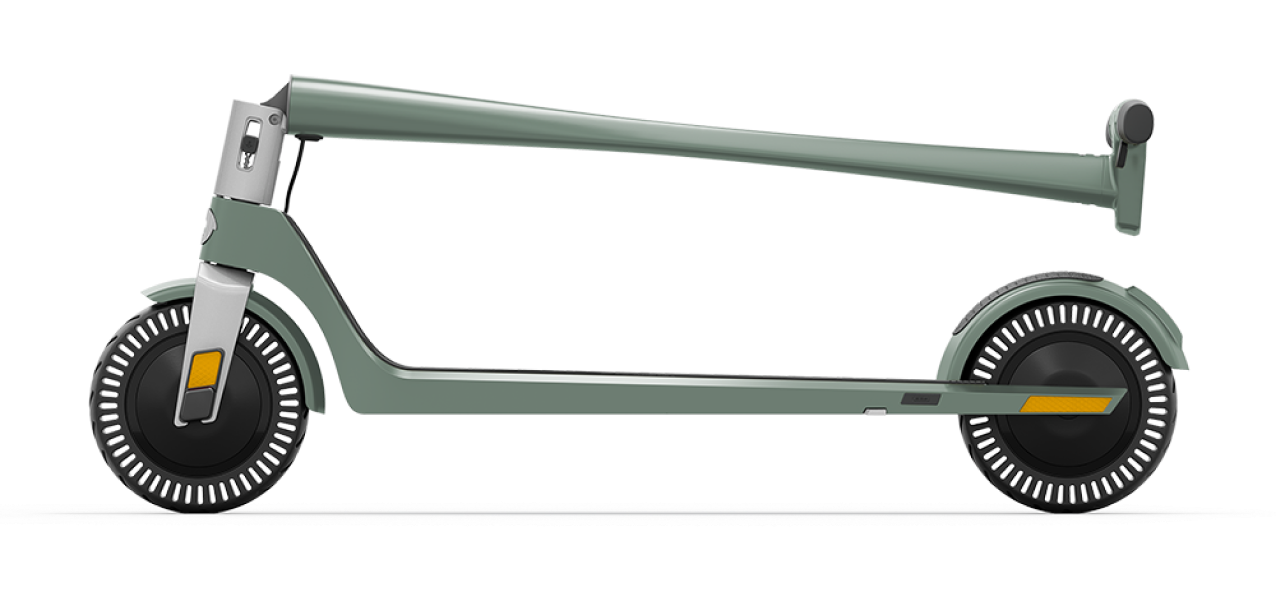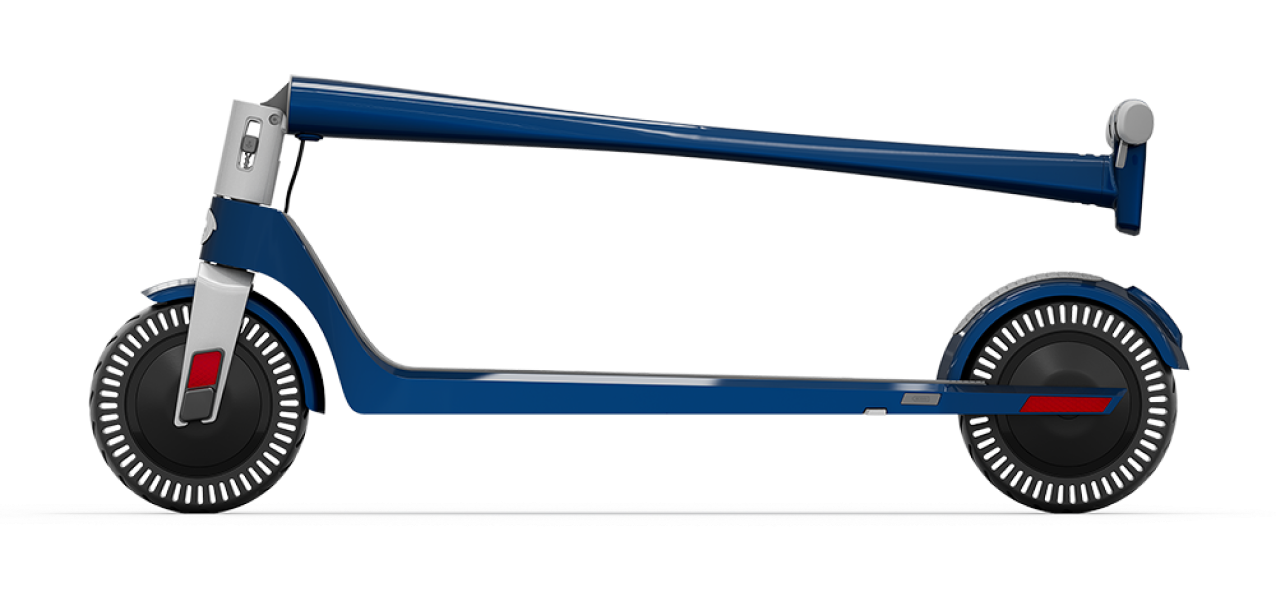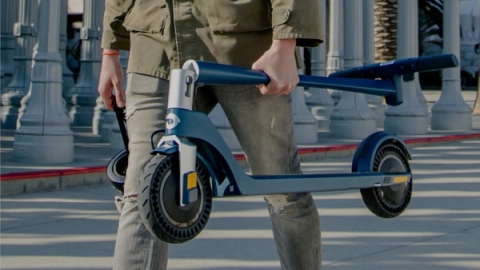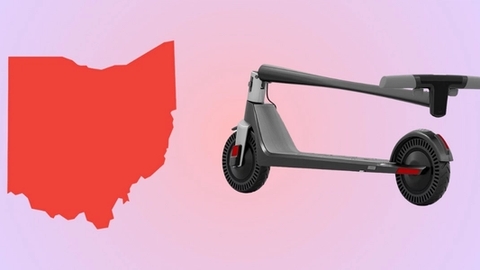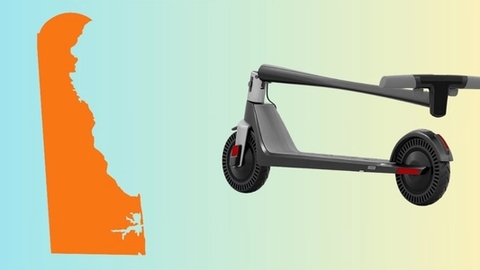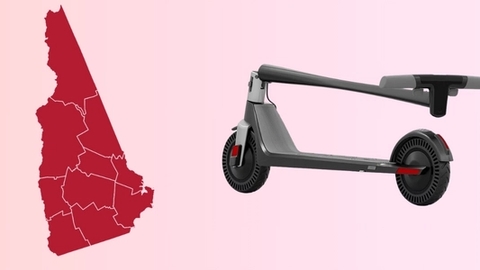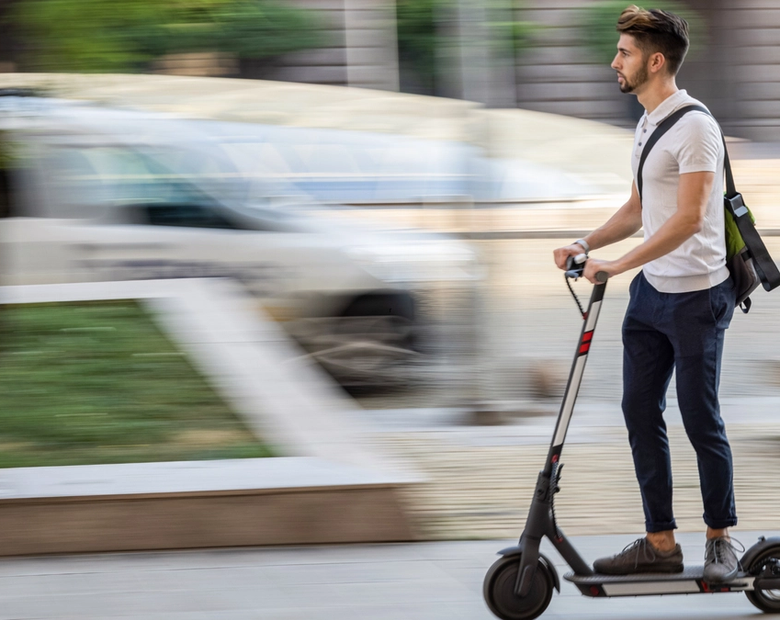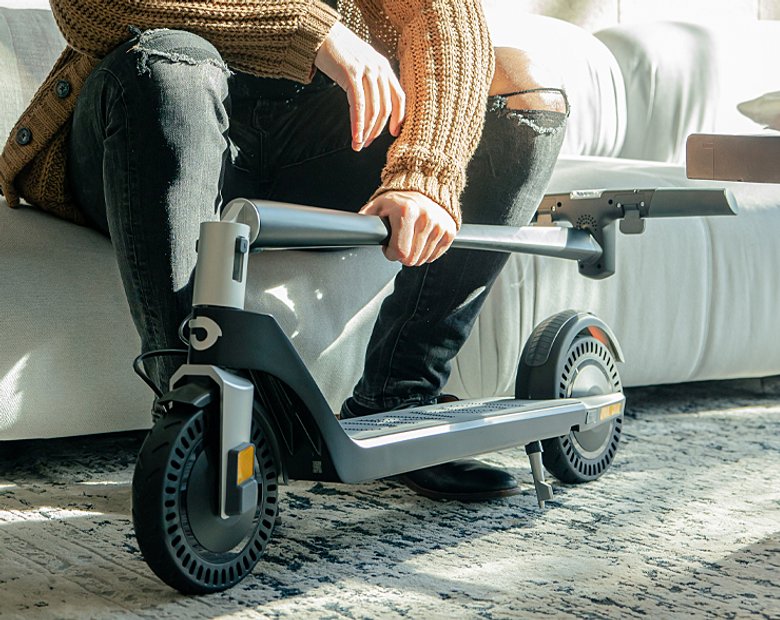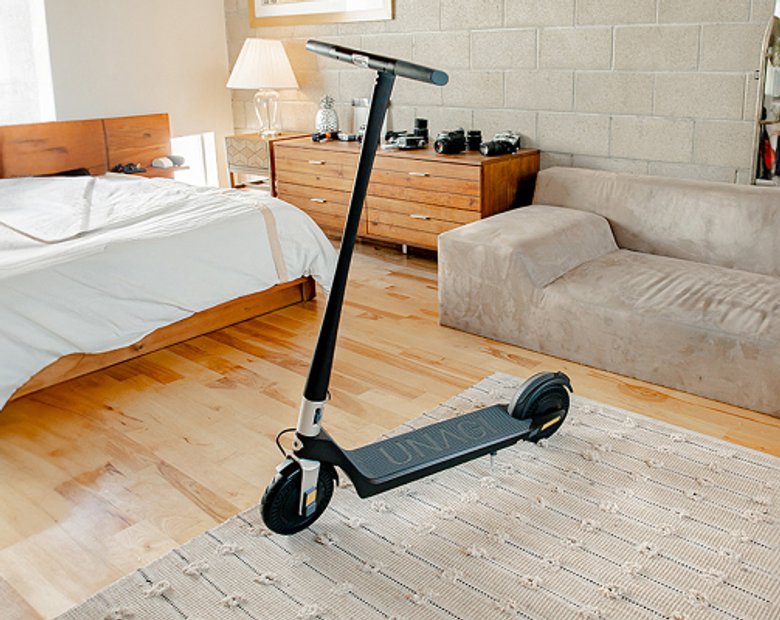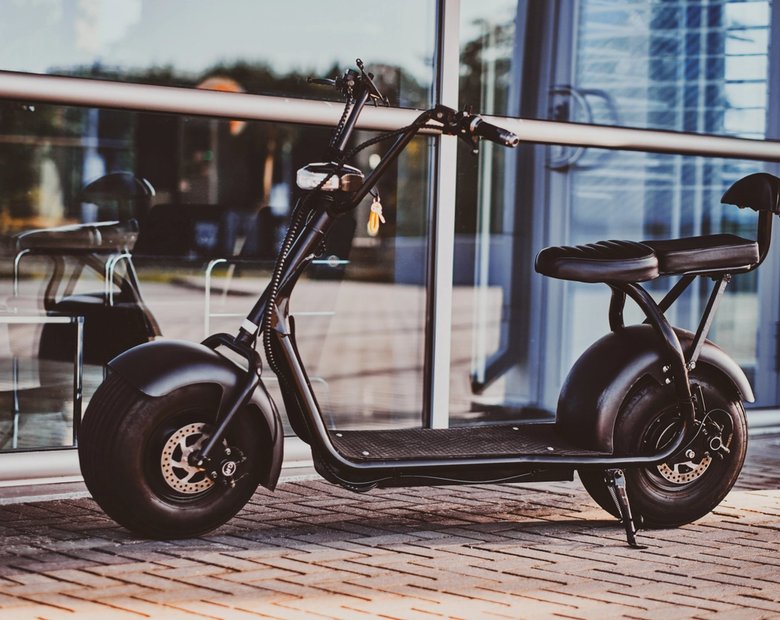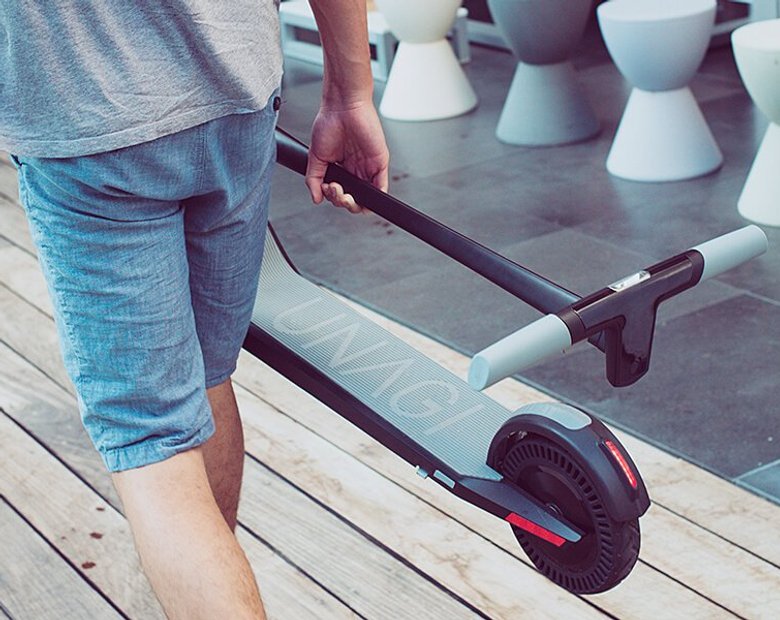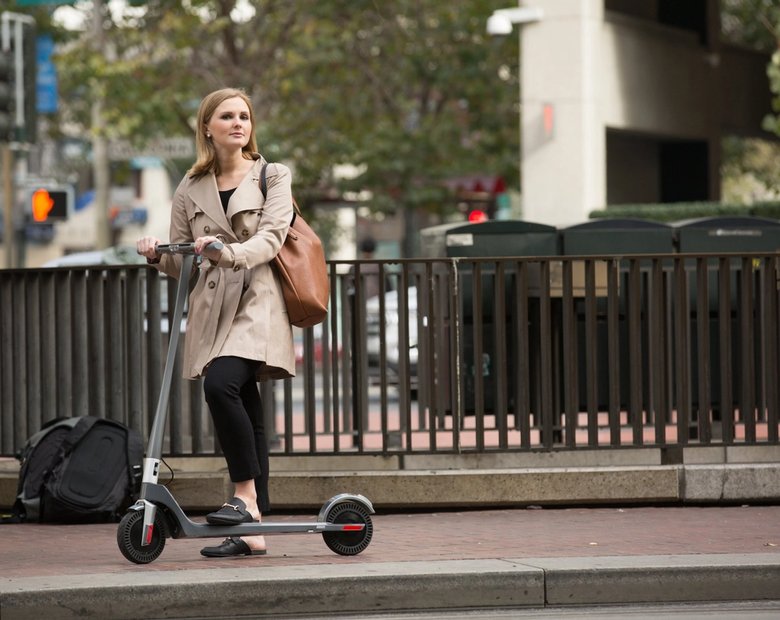Micromobility is here to stay, and it’s changing how we experience urban life for the better. With Unagi’s membership program, you can enjoy all the benefits of a top-tier electric scooter without the sky-high price of ownership or the inconvenience of ride-sharing.
As cities become more crowded and traffic worsens by the year, the old ways of commuting have become increasingly unsustainable. So, is it worth buying yourself an electric scooter?
Whether it's the rising cost of gas, insurance, and the vehicles themselves, or just a desire to avoid the monotony of traffic jams, there are plenty of reasons you might have started looking elsewhere for your daily commute.
Public transport and personal electric vehicle options are increasing in popularity globally, and many cities have embraced the changes, offering tax breaks or other incentives to ditch the car.
For a few years now, ridesharing electric scooter and bike options have popped up all over the place, from Los Angeles to Lisbon.
Why are electric scooters becoming so popular
Lots of commuters have chosen to embrace these new ride-share models that reduce their carbon footprint, cut transportation costs and cut down significantly on their time spent out on the road.
Most electric scooters are easily portable and require little effort to operate, most models are pretty fast, and improving battery technology means even smaller batteries can boast a reasonable range.
There are many other benefits besides these, but questions remain for many who haven’t made up their mind:
- Are electric scooters worth the cost of ownership
- Can a scooter replace my car?
- Is it better to buy a bike and are electric scooters a reliable form of transport?
Below, we will try our best to answer some of these questions and help you decide if an electric scooter is the right choice for you.
Electric scooter costs of ownership

Just before the pandemic, a study found that the average American spends about $2600 per year on their commute. Of course, these are ballpark figures and the true figure for you will vary hugely depending on the distance and the mode of transportation chosen.
As a starting point though, on average at least, the costs associated with commuting are very high, and if you've been looking for cost savings in this part of your life, you aren't alone.
The cost savings of owning a personal electric vehicle (electric scooter or e-bike) are enough on their own to be worth considering.
The second biggest reason why people are choosing to go down this road is because these options are much more eco-friendly, which is something we're made more and more aware of in our daily lives.
Electric scooters solve both of these problems, or at least positively impact them, but then why buy your own when there are so many ridesharing options about.
Pros and cons of electric scooter ridesharing
Ridesharing electric scooter options like Bird, Lime, and Bolt are popping up all over the place, in which you can just hop on and ride from a convenient location and pay only for the minutes or miles which you travel.
There are obvious benefits to using electric scooter rideshares, like the great price that they usually offer and the way you can check the charge of the batteries from afar with an app before committing to walking to it. There's also the lack of responsibility for maintenance, you'd never need to buy spare parts.
But like with all technology, it can let you down.
Sometimes the companies have been known to draw you in with an attractive price, but this will only apply to the first few rides. There have also been issues reported with popular scooters being damaged and not reported, nevermind the fact that you can't tell how modern the models are from afar.
While ridesharing can cut costs, it also introduces other problems—such as the ecological impact of thousands of broken bikes and scooters per year, and overfill on the streets when competing companies all flood their own models of scooters into the same city.
There are also the problems of reliability and access when thousands of commuters compete to use the same limited inventory of sharable electric scooters, often at a similar time of day.
The cost of using rideshares has also gone up in recent years, as fees and exorbitant overhead costs take their toll on rideshare companies. Some estimates place the yearly cost of riding shared bikes and scooters somewhere around a whopping $1600/year.
While this is still significantly less than the cost of driving, that same amount or less could be invested in an electric scooter that can last for years, especially if it’s a well-designed model.
Coming in at well under $1000, both the single and dual-motor versions of Unagi cost much less than most commuters will spend in just one year of ridesharing, which is a huge advantage to anybody, no matter their use for the electric scooter.
Unagi electric scooter subscription service

A further option here that deserves an honorable mention is the Unagi all-access scooter subscription service, which is sort of half-way between a rideshare and owning the vehicle outright. It's a great way to invest in having a vehicle full-time, without the initial cost.
How it works is the rider (you) gets to select and customize a top-tier Model One E500 electric scooter, which will then be delivered to your location of choice. The scheme can be opted into monthly or annually, with the scooter being picked up after your agreed time.
These scooters come with full insurance and are fully serviced before delivery, so there are no maintenance concerns to be worried about either. In the rare instance that something does happen, you'll be given an electric scooter in the meantime whilst yours is fixed up, so peace of mind is included in the price.
The benefits of owning an electric scooter
In this section we will do our best to explore the benefits of owning an electric scooter versus a car or bike, which are the most common modes of personal transport.
Will an electric scooter ever replace my car?
Owning an electric scooter is clearly a strong investment as a means of transportation, but the benefits of ownership go beyond the great value that they provide. Your electric scooter will likely cost below ten percent of what you would pay for a new car.
However, there are three areas that cars (electric or otherwise) do excel in for this comparison, which are range, comfort and top speed. The range is expected, a car just has much more space for energy storage. As for comfort, a car will protect you from the elements, although it is at the expense of sitting down for long periods of time.
Range is the main reason why an electric scooter might not work for you over a car, as the vast majority of personal electric vehicles can't really compete. For example, a mid-to-high end electric scooter option like Unagi, has a range of up to 15.5 miles on a single charge.
At the top-end, some scooters have ranges of around 60 miles, but these aren't commuter scooters, and that's the point. For the most part, 15.5 miles is more than enough capacity for most daily urban commutes, trips to the shops, excursions around town etc.
However, if your office location is in another zip code and your commute is some 20 miles each way, and more power to you if it is, maybe an electric scooter isn't the right choice for the range you require. Check out our more in-depth look at scooter ranges here.
So, it's really all down to your personal situation whether or not it suits to keep your car. If you opt for both, you’ll likely find yourself using the car significantly less, and naturally contributing far less to traffic congestion and greenhouse gas emissions.
Not only that, but you’ll also eliminate the time and expense of parking if you rely primarily on an electric scooter for your commute. Whether you pay expensive monthly garage fees or daily meters, the cost of parking generally isn’t factored into yearly commuting estimates, meaning that you’ll be saving much more than just the cost of gas by opting for a scooter.
Electric scooters versus e bikes

As for whether to buy a bike or a scooter, you’ll first want to consider the fact that bikes—especially electric bikes—are heavy, cumbersome, and hard to store in compact spaces.
They are also far more likely to be stolen than portable, folding scooters, which you can take into class or to the office and store under your desk,—and in a closet or under the bed at home.
Biking is great exercise, but you don’t always want a workout on the way to work. A non-motorized bike can mean a sweaty summer commute and extra time for a shower and change of clothes once you get to where you’re going.
Some benefits that they both share is that the rules in most cities permit your e scooter to enter a bike lane, which can streamline your journey to work by skipping traffic jams. Bicycles generally offer more range because of a bigger battery, but the battery technology itself is largely the same.
Electric scooters don't suffer from flat tires nearly as much as bicycles because they are hard rubber and not pumped full of air with a vulnerable inner tube. Equally they don't need replacement brake pads as often, and don't have chains that can come off and are susceptible to the weather.
Electric scooters are compact and lightweight, which not only means an easy, hassle-free ride for short journeys, but also means it’s easy to carry an electric scooter on subway cars and buses. More than any other transportation option, electric scooters can solve “last mile” problems commuters encounter when they live a little too far from public transportation to walk comfortably.
Electric scooters offer the kind of flexibility in commuting that no other vehicle can, allowing riders to combine many different options for the most efficient routing through their city.
This level of flexibility makes electric scooters uniquely suited to the demands of our rapidly changing urban lifestyles. They offer maximum mobility with minimal cost and effort.
If you run into bad weather, an electric scooter can easily be folded up and tossed into an Uber or Lyft which the majority of electric bicycles cannot.
Are electric scooters reliable?
When it comes to reliability, you’ll find that an expertly crafted electric scooter will last several years with proper care and will require little to no maintenance. Another cost often left out of yearly commuting estimates is the significant expense of regular car maintenance and frequent repairs, which can be a huge drain on your monthly budget.
A single expensive car repair can easily overshadow the cost of a quality electric scooter like Unagi. In addition to all of these factors, the average scooter is a far more reliable vehicle than shared bikes and scooters, since shares are subject to heavy use and abuse on a daily basis.
With good charging practise, the lithium ion battery that powers your electric scooter will last for a very long time without losing charge or needing to be replaced. With current technological advances, you don't need to buy the best scooter on the market to get one with a very reliable and powerful battery.
By virtually every measure, owning and using an e scooter for daily commutes and short trips makes sound economic and environmental sense. Electric scooters take up little storage space, are fun and easy to ride, and can be carried easily on public transportation.
Unlike cars and bikes, which require routine maintenance, the only additional cost you’ll incur after the initial investment in a high-quality electric scooter like Unagi is the cost of a helmet or other safety gear.
Are electric scooters worth it?
We can certainly say that if you're planning to use it on a daily basis, electric scooters are worth the money, being both more economical in the short term and long term than a car.
When it comes to ridesharing electric scooters, these schemes can be really practical and cost-effective, but you are playing a bit of a game of lucky dip every time you reserve one, and they are not consistent enough to rely on, in terms of both being available in the right place and not being damaged in some way by a previous rider.
Comparing the use of an electric scooter to an electric bike, it's fair to say that whilst bikes have long range, a scooter offers more flexibility and convenience. Both of these options are eco friendly and arguably strong investments, though an electric bicycle will require more maintenance and generally start at a higher price point.
With its sleek, lightweight design, easy folding mechanism, and high-tech engineering, Unagi represents some of the best value on the market for an electric scooter. Whether you opt for the subscription service or to buy your own model outright, the price for quality and performance makes it a very appealing option.
Unagi offers 30-day, no-questions-asked returns so you can start riding and find out for yourself risk-free just how much you could save.

